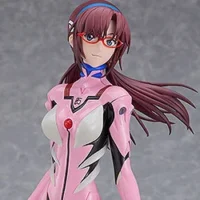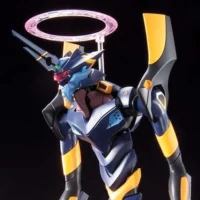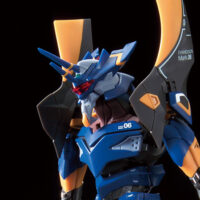Your basket is currently empty!
Neon Genesis Evangelion
Neon Genesis Evangelion (新世紀エヴァンゲリオン) is a landmark Japanese anime series that debuted in October 1995. Directed by Hideaki Anno and produced by Gainax, the series redefined the mecha genre by blending psychological depth, religious symbolism, and existential themes. Set in a post-apocalyptic world fifteen years after a global catastrophe known as the Second Impact, the story follows 14-year-old Shinji Ikari, who is recruited by the secretive organization NERV to pilot a bio-mechanical giant robot called an Evangelion to combat mysterious beings known as Angels.
The narrative delves into the complexities of human emotion, identity, and relationships, often exploring themes of depression, trauma, and the search for meaning. Characters like Shinji, Rei Ayanami, and Asuka Langley Soryu grapple with their own psychological struggles, making the series a profound exploration of the human condition. The show’s use of Judeo-Christian and Kabbalistic imagery, such as the Angels, the Lance of Longinus, and the Human Instrumentality Project, adds layers of mysticism and ambiguity to its storytelling.
The original 26-episode series concluded in March 1996, but due to its abstract ending, it was followed by two films: Neon Genesis Evangelion: Death & Rebirth (1997) and The End of Evangelion (1997), which provided a more conventional and widely acclaimed conclusion. In the 2000s, the franchise was revitalized with the Rebuild of Evangelion film series, which reimagined and expanded upon the original story, culminating with Evangelion: 3.0+1.0 Thrice Upon a Time in 2021.
Celebrating its 30th anniversary in 2025, Evangelion continues to influence and inspire new generations of fans and creators. The series is available for streaming on platforms like Netflix, allowing both newcomers and longtime enthusiasts to experience its enduring impact on anime and popular culture.
Showing all 5 resultsSorted by latest
- Sale
Blokees
Evangelion Unit-01 Legendary Edition
Original price was: £31.99.£29.99Current price is: £29.99. Max Factory
PLAMAX Mari Makinami Illustrious
£60.99Bandai Spirits
ROE #6 Evangelion Mark.6
£43.49Bandai Spirits
ROE #2 Evangelion-00 Prototype
£34.49Bandai Spirits
RG Evangelion Mark.06
£42.99





